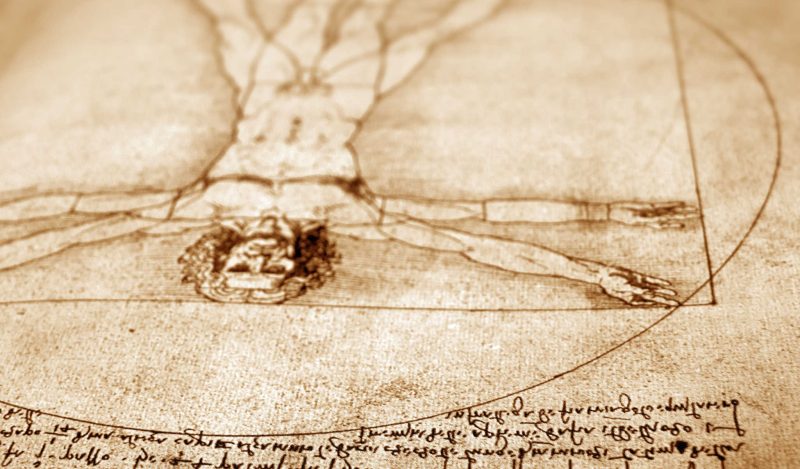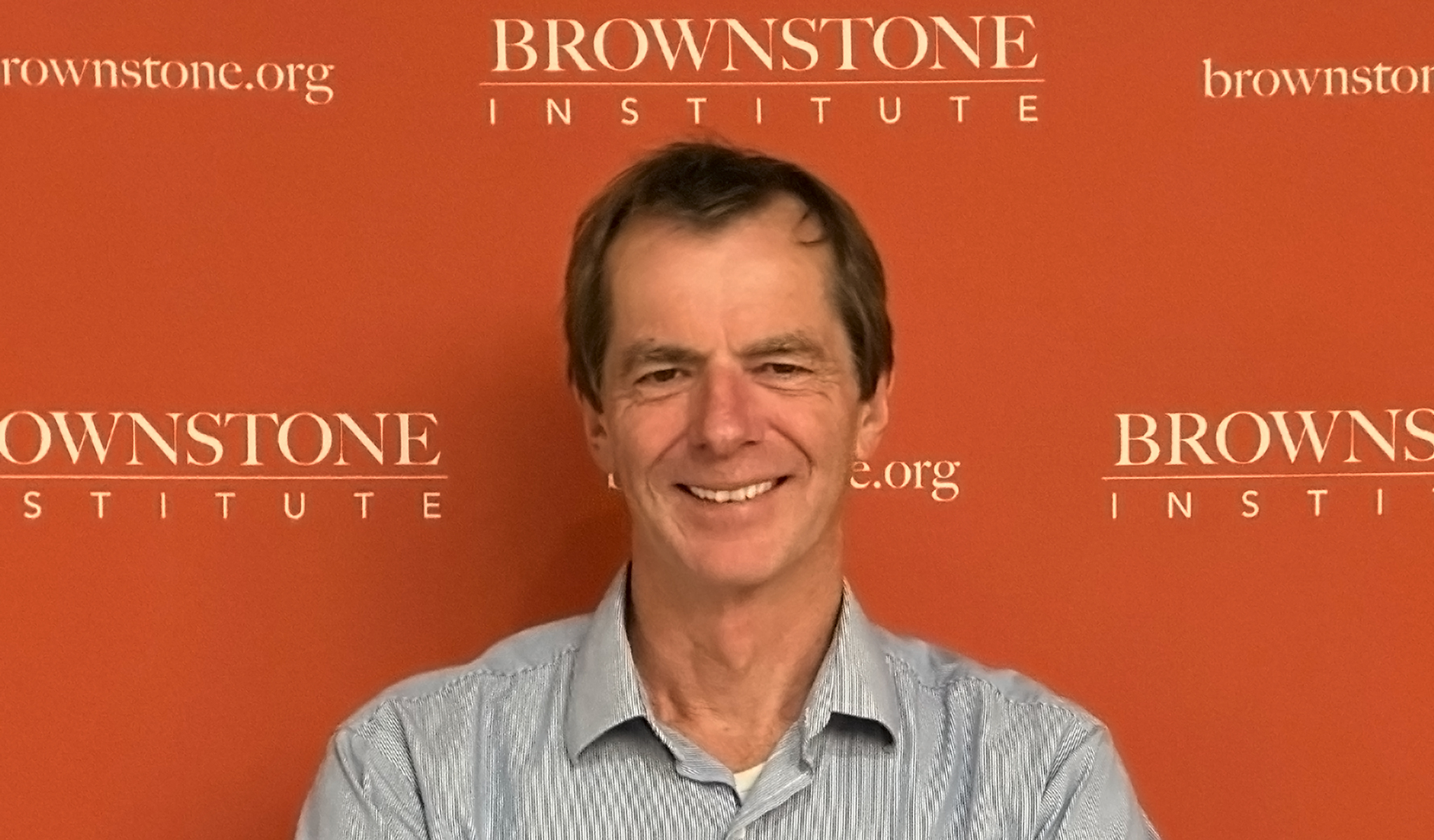The past few years have witnessed a reconfiguring of concepts of human rights, of real and unreal, right and wrong, and also the absence of any such distinctions. We have witnessed the wealthiest increase their wealth by rallying against inequity, and democratic governments manipulating their people through fear and intimidation.
We have watched as elderly are abandoned, children isolated and societies locked down, impoverishing hundreds of millions in the name of protecting their health. Those driving these events can explain their actions as logical, rational and purposeful. They are dealing with opposition from a completely incompatible world view, and cannot be expected to engage with or respect it.
A Rational View of Us
To consider any action to be intrinsically wrong would require an acceptance of fundamental good and bad. However, if human thought is no more than chemical signaling and electron transfer, then such views can be reconfigured like any other software and cannot be absolute. What if the movement to reinvent humanity, the “fourth industrial revolution,” the melding of biology and machines makes sense? If we humans are indeed just chemistry, a construct of physical laws, then any apparent contradictions are acceptable, as are lies, manipulation and the denigration of others that define our changing world.
A potential chemical reaction proceeds to a product, or it does not, with implications concerning the arrangement of atoms. This arrangement cannot be ‘good’ or ‘bad,’ if there is nothing but further chemistry impacted by it. One arrangement may result in an electrical potential in a cell membrane, resulting in a neuron signaling to cells nearby. For this product to have worth, there would have to be something external and non-physical perceiving it. Otherwise, the reaction could have run in any other direction and that would simply be reality. This reality cannot be good or bad, just a change in the properties of some physical thing.
Humans are a complex conglomeration of chemical structure and interaction, resulting from a process of chemical replication patterned on strings of nucleic acids. This DNA codes for the construction of complex proteins from more simple, common molecules. The process is partially derived from some single-celled construct eons ago, partly from other simple bacteria that happened to replicate more consistently when enveloped within these cells. A mass of cells that are in themselves just packets of chemicals, combined to make a structure in some ways more complex, but in essence just the same as each cell that forms it.
When equilibrium ceases to be sustainable due to transcription errors or invasion of incompatible organisms, the structure falls apart. A chemical soup produced by molds, bacteria, or reactions no longer suppressed. No more maintenance of membrane potentials, no more chemical signaling to distant receptors. The personality, memory, fears and pride that were themselves merely a manifestation of chemistry and electrical impulses are no more. The thing is dead, though never really ‘alive,’ as this is really just rearrangement of atoms.
Whatever ‘it’ was, it was not ‘conscious,’ just a passing ‘self-awareness’ that could only have been a chemical process that promoted the likelihood of replication. It was worth nothing, and of no consequence. The blankness of the chemical soup soaked into the ground has no further perception of anything. It may as well never have existed. Worthless, because in such a transient world there can be no such thing as worth. One day the sun will become a supernova, swallow up whatever organic material remains on this particular planet, and all these unnoticed and unnoticeable events – life on earth – will be no more.
So rationally, if one particular biological lump is programmed to increase its persistence through feedback loops manifested as ‘positive feelings’ – something that drives its probability of replication – so be it. If this chemical drive engulfs other biological masses, or triggers their pain receptors, or causes tens of millions to disintegrate, nothing is really lost. Those disintegrated biological constructs had no more meaning or worth than a lump of rock.
Dying is not actually sad if there is no sadness, no happiness, no value. Even striving to replicate the DNA – the selfish gene concept – cannot be selfish. Genes are, after all, just arrangements of matter. A strand of nucleic acids cannot ‘think’ – it cannot store charge or excite receptors until a new chemical structure assembles according to its code. Even love and protection of families must be ridiculous, if this logic is followed, as each member is a spiritless transient mass of matter, unrelated once physically separated from another.
So if a portion of the population is killed by a pharmaceutical, designated to be carted off in railroad cars, fried with napalm on a distant roadside, disappeared the day before it’s due in court, or excluded from food and shelter in order to make another ‘feel’ more positive, how can that actually be wrong? How can rights be allocated to chemical constructs? Lumps of biology that formed cows are carved up and cooked, lumps of biology that formed humans are taken off to islands and used and consumed because this is where chemistry leads. It’s just what stuff does. No slave, no ‘free,’ just chemicals reacting to form a product. If there is no view external to this chemistry, then none of it can have worth.
On this basis, it becomes rational to buy shares in companies that kill, lie to anyone incessantly, and denigrate and mock whenever useful to oneself. Consciousness becomes just a temporary state of matter. We are just empty shells of vacuousness. A ‘life’ is a transient flow of a stream after rain.
The Only Alternative
For a view of humanity limited to the physical to be wrong, it would have to be absolutely and fundamentally wrong. Any view that accommodated worth, right and wrong, would have to accommodate a shared experience that lasts beyond, and so predates, a physical self. Right and wrong cannot exist for only a period of time. If they are merely transient and tied to a biological mass, then they are mere impressions due to transfers of electrical charge, and not subject to shared experience.
Perceptions of love and empathy are then no different than hate or disgust. They are not a sign of worth, and don’t exist beyond each neuronal structure. Consciousness and shared fundamental values could not pass through the nexus of sperm and egg. If they exist, they must relate to components beyond the physical. So there is no right or wrong, or there is right and wrong. But if there is, then everything about life is different.
If we are more than constructs of atoms, then the universe, including ‘time,’ is a totally different place. If we accept that consciousness is not purely biological, then we exist in a reality beyond the purely physical. This changes the relationship with other life forms completely.
If the consciousness of the biological construct is somehow separate from the body killed in the concentration camp, or killed by malaria when resources were diverted to a vaccine, or starved when the price of diesel increased, then there are new implications. They who drove these actions would have to deal with whatever it is beyond the biology they disrupted.
If reality beyond the physical is true, there must be glimpses of it somewhere. If something in us was deeper than organic chemistry, then we would have some sense of it, a sort of ‘conscience.’ We would have a reluctance to do some things despite them being physically advantageous – such as murder an old lady for her assets or abuse a child. It would be illogical to have such qualms if these acts did not bear non-physical implications.
An existence beyond our immediate biological construct (our body) would, rationally, demand more attention than the maintenance of this body. Our physical body will, after all, exist for a ridiculously short period of time. If the other human entities around us are thinking like us, have a conscience like us, can see beauty, feel pain, and love like us, then their worth would seem similarly important, and abusing them becomes untenable. There could be consequences beyond the physical, sometime, somewhere, for such abuse. This could include internal suffering for debasing something immeasurably valuable by harming their sense of love and beauty.
Choosing Where to Stand
People have laughed, loved, and danced for millennia. Stories have been told, plays acted, music played through wars, plagues, revolutions and oppression. When certain leaders forced closure of theaters and pubs in early 2020, this was in many places the first time such communal sharing had ceased in thousands of years. It was the first time ordinary families were banned en-masse from providing their elderly with care and companionship, and mourning them when they died. In previous crises, people recognized value beyond themselves.
When they charged the beaches of Normandy, or fought the Romans back across the Rhine, ordinary people were not staying safe, but risking their physical bodies in the belief that something of worth existed beyond themselves. They were opposing those who rejected such values. It is not new that some humans reject these values, but the current scale and power of this rejection is unusual.
The people who orchestrated isolation in nursing homes in 2020, who enforced malnutrition on hundreds of millions, who condemned millions of girls to servitude, are not doing so with ‘right’ or ‘wrong‘ in mind. They don’t accept that such fixed concepts exist. If there is nothing beyond the physical, then their actions are rational and cannot be wrong.
The problem here is that this reality seems incompatible with the reality of dying for unrelated others. It seems incompatible with climbing a rock face unroped, rafting a river, spending a night alone under the stars to see the beauty of the universe. Their approach may seem rational to them, but it is incompatible with the world.
There are two incompatible views of existence. The reality of loving another despite knowing one might never meet again, or giving one’s life for an unknown other, suggests that existence beyond the immediate and physical is real. That beauty, and love, and truth exist even when our bodies cease to exist. In this reality, harm to others through intent or neglect, must have consequences. So must the act of doing nothing in the face of it. There is no ‘middle ground’ where these views meet – these realities cannot coexist. One, at least, must be completely wrong,
The only way society could move forward and function is to recognize this incompatibility, ignore those who see no value in others, and reject their self-promoting interventions. If these humans are not the empty husks they think they are, then they will need something greater than rational discussion to find their way back to truly communing with the rest of us. While we can hope they find that, we need to rebuild society based on values that are centered not on ourselves, but on a far more exhilarating reality.
Join the conversation:


Published under a Creative Commons Attribution 4.0 International License
For reprints, please set the canonical link back to the original Brownstone Institute Article and Author.









